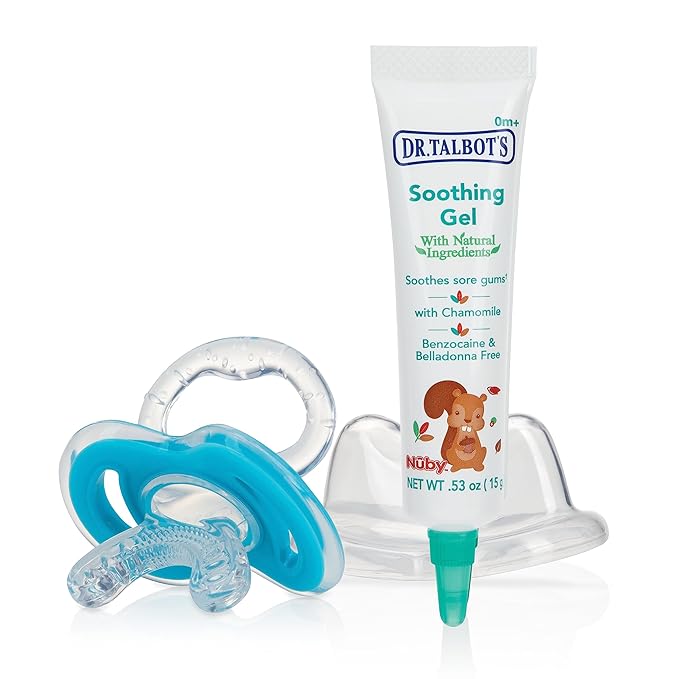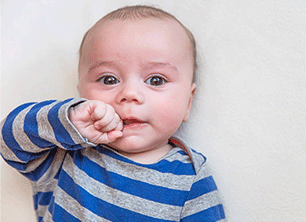Early morning wake-ups can be challenging for parents and babies alike. Understanding the reasons behind your baby’s early waking can help you address the issue and ensure everyone gets enough rest. Here are several common reasons why your baby might be waking up too early and tips on how to help them sleep longer.
Other Topics You Might Like
Helpful Products You Might Like

Dr. Talbot's Soothing Gel for Sore
Gums

Amazon Basics Portable Travel Window Blackout Curtain

Fisher-Price Baby Toy Soothe 'n Snuggle With Sound Machine
"(Paid Links)" 
Hunger
Hunger is a common reason for early waking, especially in younger babies. Babies have small stomachs and may need frequent feedings. If your baby is waking up hungry, consider:

Increasing Daytime Feeds
Ensure your baby is getting enough milk or solids during the day to keep them full at night.
Dream Feed
Offering a late-night feed before you go to bed can help extend their sleep until morning.
Overtiredness
Babies who are overtired often have difficulty staying asleep. An overtired baby may wake up early due to increased stress hormones in their system. To prevent overtiredness:
Consistent Bedtime
Establish a regular bedtime routine to help your baby wind down and fall asleep more easily.
Appropriate Naps
Ensure your baby is getting the right amount of daytime sleep for their age. Too little or too much sleep can impact nighttime sleep.
Sleep Environment

A baby’s sleep environment plays a crucial role in their sleep quality. Consider the following factors:
Light
Early morning light can signal to your baby that it’s time to wake up. Use blackout curtains to keep the room dark until it’s time to get up.
Noise
Morning noises, such as birds chirping or household sounds, can wake your baby. A white noise machine can help mask these sounds and create a consistent sleep environment.
Temperature
The temperature of your baby’s room can affect their sleep. A room that is too hot or too cold can cause discomfort and early waking. Aim to keep the room at a comfortable temperature, around 68-72°F (20-22°C), and dress your baby appropriately for sleep.
Sleep Associations
Babies often develop sleep associations, which are the conditions they associate with falling asleep. Suppose your baby relies on certain conditions to fall asleep, such as being rocked or fed. In that case, they may struggle to go back to sleep without those conditions during early morning wake-ups. To address this:
Encourage Self-Soothing
Gradually reduce sleep associations to teach your baby to fall asleep independently. This can help them learn to go back to sleep on their own if they wake up early.
Developmental Changes
Developmental milestones like learning to crawl, walk, or talk can disrupt your baby’s sleep. These changes often cause increased brain activity, leading to early waking. While you can’t prevent developmental changes, maintaining a consistent sleep routine can help your baby adjust more easily.
Illness or Discomfort
If your baby is teething, experiencing a growth spurt, or feeling unwell, they may wake up early due to discomfort. Addressing their needs and providing comfort can help them sleep better. If you suspect illness, consult your pediatrician for advice.

Early Bedtime
Sometimes, an early bedtime can lead to early waking. While it’s essential to ensure your baby is getting enough sleep, you may need to adjust their bedtime slightly. Experiment with a slightly later bedtime and monitor their wake-up time to find the optimal balance.
Natural Sleep Patterns
Some babies are naturally early risers due to their internal body clock. Suppose your baby consistently wakes up early despite your efforts. In that case, you may need to adjust your schedule to accommodate their natural sleep patterns.
Tips for Encouraging Longer Sleep
Gradual Adjustments
Gradually change your baby’s sleep schedule and routines to avoid overtiredness or resistance.
Morning Routine
Create a consistent morning routine that signals to your baby when it’s time to start the day. This can include feeding, changing, and playtime.
Patience
Changes in sleep patterns can take time. Be patient and consistent with your approach; your baby’s sleep will likely improve.
By understanding the potential reasons behind your baby’s early waking and implementing these strategies, you can help them achieve a more restful and consistent sleep pattern, benefiting both your baby and yourself.
